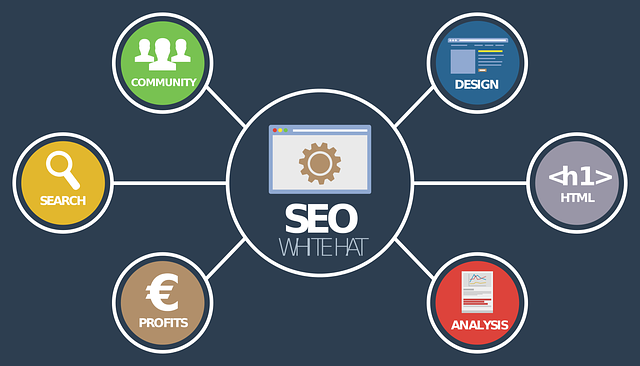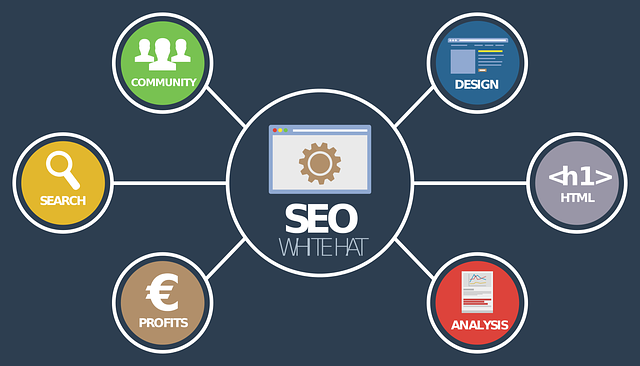Artificial Intelligence (AI) is transforming commercial real estate (CRE) through advanced data processing, offering crucial insights and efficiency gains in marketing and portfolio management. AI analyzes footfall, customer behavior, and environmental factors to optimize pricing, identify valuable properties, and predict market shifts, enhancing portfolio performance and marketing strategies. It also tracks noise and traffic patterns using machine learning, helping property managers address issues and improve tenant satisfaction while maximizing investment value. Measuring AI marketing ROI involves tracking lead generation, conversion rates, customer engagement, website analytics, social media interactions, and other metrics to assess the overall success of AI-driven CRE initiatives.
“Unleash the power of Artificial Intelligence (AI) in revolutionizing commercial real estate (CRE) strategies. This article explores how AI can transform asset management by tracking noise and traffic patterns, offering invaluable insights for investors. From understanding AI’s role in analysis to deciphering its impact on marketing ROI metrics for CRE portfolios, we delve into effective methods and benefits. Discover how AI is navigating the future of CRE, ensuring informed decisions and maximizing investment potential.”
- Understanding AI's Role in Commercial Real Estate Analysis
- Tracking Noise and Traffic Patterns: Methods & Benefits
- Measuring ROI for AI-Assisted CRE Marketing Strategies
Understanding AI's Role in Commercial Real Estate Analysis

Artificial Intelligence (AI) is transforming commercial real estate (CRE) analysis, offering unprecedented insights and efficiency gains. Its ability to process vast datasets, including historical sales data, occupancy rates, and market trends, enables more accurate predictions and informed decision-making for investors and developers. By leveraging AI algorithms, professionals can uncover complex patterns in noise and traffic levels, which are often overlooked by traditional methods.
In the context of marketing and portfolio management, AI provides valuable metrics to measure the return on investment (ROI) for CRE assets. It analyzes footfall data, customer behavior patterns, and environmental factors to optimize pricing strategies, identify high-value properties, and predict market shifts. This technology assists in understanding consumer preferences, enabling developers to design and position their projects effectively, ultimately enhancing overall portfolio performance and marketing strategies.
Tracking Noise and Traffic Patterns: Methods & Benefits

AI-driven noise and traffic pattern tracking offers a sophisticated approach to analyzing commercial real estate (CRE) assets, providing valuable insights that can enhance investment strategies. By employing machine learning algorithms, this technology captures and analyzes sound levels and movement patterns within and around properties, offering a nuanced understanding of environmental factors impacting tenants’ experiences and asset values.
The benefits are manifold, from optimizing property management by identifying noise hotspots and traffic flow issues to enhancing tenant satisfaction through data-backed environmental improvements. Moreover, these AI solutions contribute to measuring and demonstrating the marketing ROI metrics for CRE portfolios. Landlords can leverage this data to make informed decisions about leasing strategies, pricing adjustments, and even property development or renovation plans, ultimately maximizing the value of their real estate investments.
Measuring ROI for AI-Assisted CRE Marketing Strategies

Measuring the return on investment (ROI) is crucial when implementing AI-assisted marketing strategies in commercial real estate (CRE). By utilizing advanced analytics, AI can help optimize marketing efforts and predict property preferences, but evaluating its effectiveness is essential. ROI for AI marketing in CRE is not solely determined by traditional financial metrics; it involves a multi-faceted approach to understanding the impact on various aspects of the business.
Key performance indicators (KPIs) such as lead generation, conversion rates, and customer engagement can be enhanced with AI. For instance, AI algorithms can analyze vast amounts of data to identify patterns in tenant behavior and preferences, enabling more targeted marketing campaigns. This increases the likelihood of converting prospects into tenants, resulting in higher occupancy rates. Additionally, tracking website analytics, social media interactions, and email open rates provides valuable insights into the performance of AI-driven marketing initiatives, ultimately contributing to a comprehensive assessment of the technology’s value in managing CRE portfolios.
The integration of AI into commercial real estate (CRE) analysis has opened new avenues for understanding and optimizing noise and traffic patterns, ultimately enhancing investment decisions. By leveraging AI, professionals can track these vital metrics, gain insights into market trends, and develop effective marketing strategies. Measuring the return on investment (ROI) for AI-assisted CRE marketing is crucial; it allows investors to assess the impact and make data-driven choices. With AI’s ability to analyze vast datasets, we can expect more precise predictions and informed decisions regarding CRE portfolios, ensuring a competitive edge in today’s digital real estate landscape.
